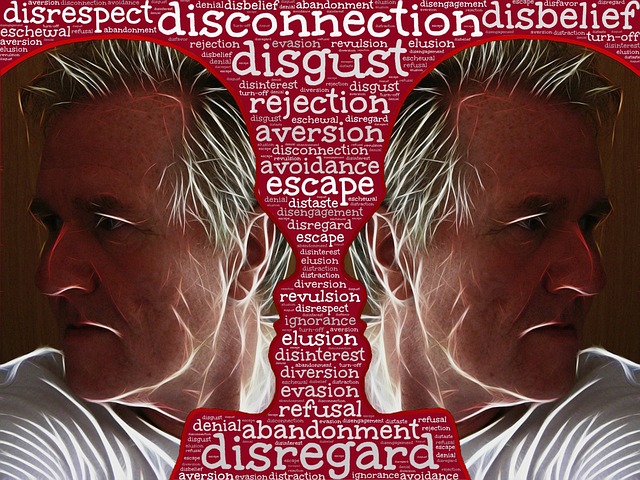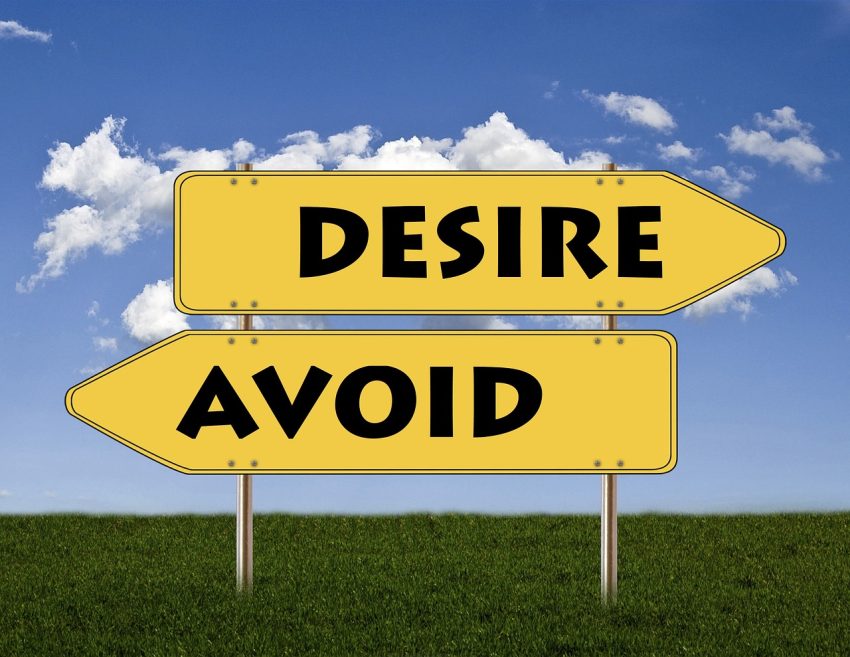In this blog we are exploring desire and avoidance. So what does that mean?
After all, we like and avoid things every day. However it is the COMPULSION to chase after something we desire or the COMPULSION to avoid or run away from something we do not like, that ultimately causes us unhappiness or suffering. For example: power, attachment and comfort.
It’s okay to like something eg. a cup of coffee, but when something becomes a compulsion then it starts to cause us discomfort, unease and stress, hence suffering. If that cup of coffee isn’t available to you, do you begin to feel uneasy and stressed? Or do you not care and say it doesn’t matter.
When we actively push something away because we don’t want it or don’t want to know anything about it, then this causes unease, stress, and suffering. For example: difficult people, or hard realities like a problematic health diagnosis, unwanted break up, difficult conversations around death or money problems and so on.

‘Life would be so much better if I had that expensive car, then people would look up to me.’ This desire may lead you into financial insecurity and fail to fullfill your ego which will cause you distress and low self esteem, hence suffering.
A person may desire to have a perfect body and constantly compare themselves to unrealistic standards portrayed in the media. This desire can lead to feelings of inadequacy, low self-esteem, and even dangerous behaviors such as extreme dieting or excessive exercise, ultimately causing suffering both physically and mentally.
A person who is afraid of confrontation and often avoids difficult conversations with their friends or family members, may instead of addressing issues head-on, suppress their feelings and allow resentment to build up, causing them emotional suffering. They may also miss out on opportunities for growth and resolution in their relationships due to their avoidance behavior.

A person who avoids seeking medical attention for a health issue. Ignoring symptoms and avoiding the doctor can lead to a worsening of the condition, potentially causing more pain, discomfort, and long-term health problems. This avoidance can ultimately result in increased suffering and diminished quality of life.
When we remove the tunnel vision of compulsive behaviours for desire and avoidance then we can engage more with the ”present moment” and open up our perspective on life. We become more aware of ‘real’ life, to the beauty around us and appreciate all the precious little moments of life that we miss because we are not paying attention to them. We can become more grateful for these simple pleasures instead of desiring more and more material things. That spending quality time with freinds and family will bring you more actual joy, than for example an expensive car, which will only bring temporary joy, as soon your mind will be engaged with your next complusive desire or fear of losing it.
When compulsions take over we are scrollling for our desires or skipping past our avoidances. Or dwelling on our desires and avoidances from our memories of the past or imagination into the future. We are living in the trance of life and missing the precious moments of real life.
Attachments to your desires cause fear, fear that you may lose them, hence suffering. The more we have the more we fear losing it all. This attachment causes suffering. If you live a simple life there is no fear because there is no attachment to what you have. If you lose it, it doesn’t matter because there is no attachment. This doesn’t mean you don’t need anything, it just means you don’t need more than enough.
Finding refuge from your suffering through a Yoga meditation practice you can discover your inner resource, your authentic Self, your inner Truth where you can free yourself from suffering. This is an ongoing journey that requires dedication and practice to find liberation from suffering. Having a group of like-minded people whom you can trust to support you in your realisation of profound truths is also necessary. In yoga this is called Sangha.
By exploring desire and avoidance you can develop spirirual growth, self compassion and self love. To realise ”I am enough;” ‘I am good enough just as I am;” ”I love myself just as I am.” can help free you from suffering. Remember it’s ok to like something, it is the compulsion for desire that causes suffering. Likewise it’s ok not to like something or a person, so long as we can accept it or them as they are, without judgement. After all, we are all on our own journey of life and we all have issues to deal with, however suppressing/avoiding your own issues because you are fearful of looking at them, causes suffering to yourself and hence others around you.
Contemplate: ”What is my suffering?” You don’t have to answer it. You can call in a higher Being or Self to help you, whoever or whatever that means to you, maybe an angel or spirit guide, ascending master, God, a deceased friend or parent, or something else. Then listen carefully with your intuition. Messages can be fleeting, a thought an image, you’ll know intuitively Through this practice, remember to offer your self love and compassion.
”Remember, abandoning desire doesn’t mean becoming emotionless. It’s about recognizing the impermanence of worldly cravings and prioritizing inner peace over fleeting satisfactions. As we embark on this journey, we become vessels of compassion, radiating genuine happiness and contributing to a world less driven by insatiable desires.” (Aditi Pathak. Scroll to bottom for link.)
Realisations are the most precious things you can have. To realise You are luminousity, light, intelligence, joy, delight and love in abundance. Even small achievements in your practice must be recognised as they are your path to exploring desire and avoidance, ultimately helping you to let go of suffering and realise the Truth That You Are.
Hari Om Tat Sat
Find Yoga classes: https://beyondmindfulnessni.com/yoga-with-janet
For more understanding of desires and avoidances: https://www.quora.com/Why-did-the-God-Shri-Krishna-tell-Arjun-not-to-have-any-desires-and-then-later-on-in-Gita-told-him-to-have-a-burning-desire-for-something-in-life

1 thought on “Exploring Desire and Avoidance”